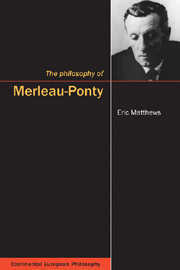4 - Embodiment and Human Action
Summary
For the Cartesian dualist, our being is not strictly in the world at all; the subject of experience, “the mind by which I am what I am”, as Descartes puts it, is a conscious mind, which is independent of the world of matter, even of the body to which it is for the time being attached. The subject, being unextended, is not even in space; the world is a spatial system of objects that the subject contemplates from a “position” that is not part of that system. The main traditional alternative to Cartesianism has been a materialistic monism, which rejects one of Descartes's two substances, mind, and retains only matter. For this kind of materialism, human being is certainly in the world, but in the sense that human beings are simply one kind of material object and, as such, are spatially located in the world of matter like every other kind of object. But this sort of “being in the world” rules out any ultimate distinction between subjects and objects; what we call “subjective experience” is, on this view, merely a way of referring to the causal impact of other objects on the sense organs and brains of certain kinds of living organisms.
As these illustrations show, it is impossible ultimately to separate the question of the nature of our minds and their relation to our bodies from that of the relation between our experience and its objects. Merleau-Ponty rightly says, “The theory of the body is already a theory of perception” (and the converse is, of course, equally true). But the dualist and classical materialist theories of the body entail equally unsatisfactory theories of perception from a phenomenological point of view.
- Type
- Chapter
- Information
- The Philosophy of Merleau-Ponty , pp. 67 - 88Publisher: Acumen PublishingPrint publication year: 2002

